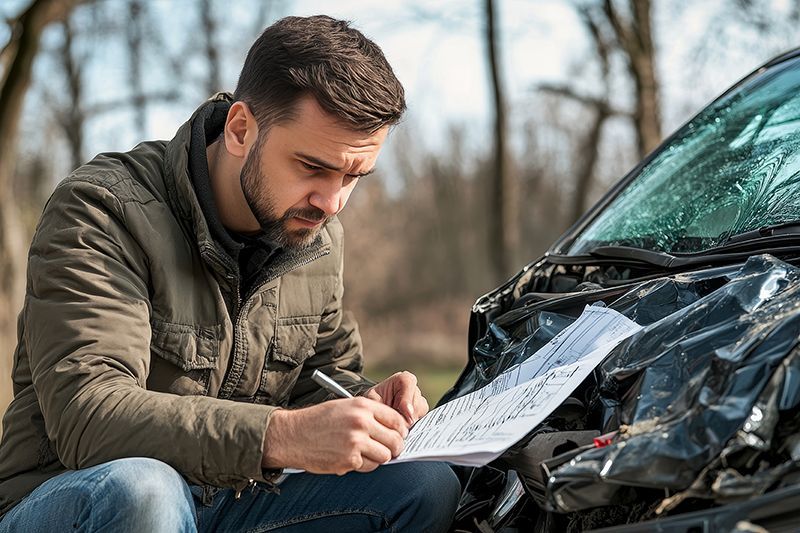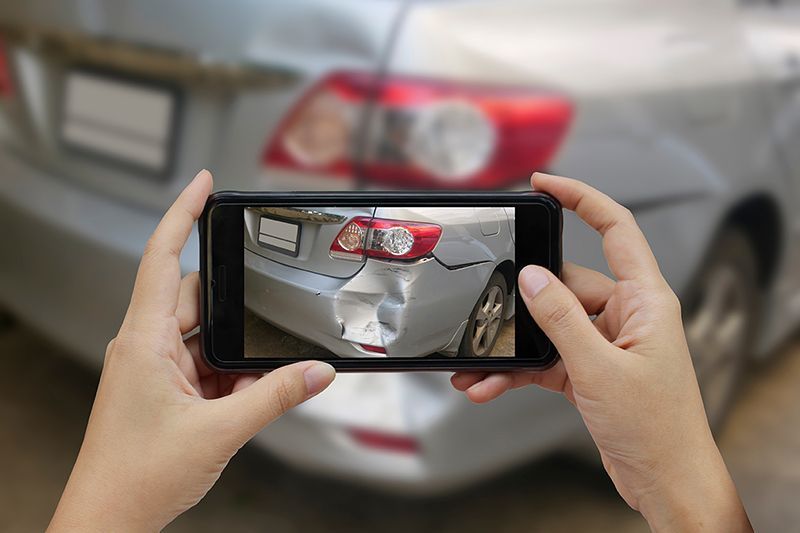By Robert Stahle
•
April 30, 2025
Car accidents happen fast—and the moments that follow can be confusing, stressful, and even dangerous. Whether you’re on a busy interstate in Omaha, a rural road outside Sioux City, or anywhere in between, knowing what to do immediately after a crash can protect your health, your rights, and your ability to receive fair compensation. At Fitch & Stahle Law Firm , we’ve been helping victims of car accidents in Iowa and Nebraska for decades. Here’s what you need to know in those critical minutes and hours following a collision. 1. Check for Injuries and Call 911 Your safety—and the safety of everyone involved—comes first. Check yourself, your passengers, and others at the scene for injuries. If anyone is hurt, call 911 immediately. Even if no one appears injured, it’s still essential to report the accident to the police, especially in Iowa and Nebraska where most accidents involving injury or property damage must be reported. In Nebraska, a crash report is required if there is injury, death, or property damage exceeding $1,000. Iowa has similar laws. Failing to report a crash could result in fines or legal complications later. 2. Move to a Safe Location If the vehicles are drivable and it’s safe to do so, move them to the side of the road or a nearby parking lot to prevent further accidents. Turn on hazard lights to alert oncoming traffic. If moving the vehicles isn’t possible, remain inside with your seatbelt fastened until help arrives. 3. Document the Scene Thoroughly One of the most important steps after a car accident is to gather as much information as possible. This evidence could be critical later when filing an insurance claim or working with an attorney. Here’s what to document: Photos of the vehicles, license plates, damage, skid marks, and road conditions. Names and contact information of all drivers, passengers, and witnesses. Driver’s license and insurance information from all involved drivers. The responding officer’s name, badge number, and a copy of the police report (or report number). Even if you feel fine, take note of any soreness, dizziness, or anxiety. These can be signs of injury that may develop or worsen over time. 4. Do Not Admit Fault It’s natural to want to apologize or take responsibility in the heat of the moment—but resist that urge. Admitting fault, even casually, can hurt your case later. Fault is determined by evidence, traffic laws, and the official investigation—not by what’s said at the scene. Stick to the facts when speaking with police, and don’t speculate. Simply provide accurate information and let the report reflect what occurred. 5. Seek Medical Attention—Even if You Feel Fine Many injuries, including whiplash, concussions, or internal trauma, may not show symptoms right away. Whether you're in Sioux City, South Sioux City, Omaha, or Lincoln, visit an ER or urgent care as soon as possible after the crash. Medical documentation is essential for proving your injuries in a personal injury claim. If you delay treatment, insurance companies may argue that your injuries weren’t serious or weren’t caused by the accident at all. Protect your health and your claim by getting checked out early. 6. Notify Your Insurance Company Let your insurance provider know that you’ve been in an accident, but be cautious about how much detail you provide—especially if you haven’t yet spoken to a personal injury attorney. Stick to the facts and avoid offering recorded statements or accepting a settlement before consulting legal counsel. In Iowa and Nebraska, you typically have to report accidents to your insurer promptly, or you risk being denied coverage. 7. Contact a Car Accident Attorney in Iowa or Nebraska If you were injured, it’s vital to contact an experienced personal injury attorney as soon as possible. Insurance companies are focused on minimizing payouts—not ensuring you’re treated fairly. A knowledgeable attorney can help you: File a personal injury claim Negotiate with insurance adjusters Estimate your full damages (including lost wages, future medical bills, and pain and suffering) Navigate the legal deadlines in Iowa and Nebraska (typically two years from the date of the accident) At Fitch & Stahle Law Firm , we understand the specific laws and nuances of auto accident cases in both states. Our legal team is committed to helping injured clients recover what they’re owed, with no fees unless we win your case. 8. Keep Records and Monitor Symptoms After the crash, keep all paperwork related to the accident and your recovery. This includes: Medical records and bills Repair estimates Police reports Pay stubs or documentation showing missed work Journal entries tracking your pain, symptoms, or limitations This documentation can make a significant difference in the outcome of your case. 9. Avoid Social Media It might be tempting to share what happened—but posts on social media can be used against you by opposing attorneys or insurance companies. Refrain from posting photos, status updates, or comments about your injuries, car, or recovery until your case is fully resolved. Final Thoughts: Your Legal Partner in Recovery Whether your accident happened on I-29, Highway 20, or a neighborhood street in Iowa or Nebraska, the decisions you make immediately afterward can shape your recovery—physically, financially, and legally. At Fitch & Stahle Law Firm , we offer free consultations to help you understand your rights and evaluate your case. If you’ve been injured in a car accident, don’t try to handle the aftermath alone. Let our experienced team fight for the compensation and justice you deserve.



